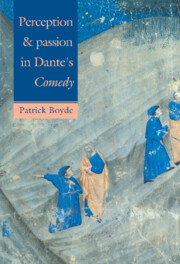Book contents
- Frontmatter
- Contents
- Preface
- PART ONE Coming to terms with Aristotle
- 1 The prestige and unity of the Aristotelian corpus
- 2 Movement and change in lifeless bodies
- 3 Self-change: growth and reproduction in plant life
- 4 Self-movement: sensation and locomotion in animal life
- PART TWO The operations of the sensitive soul in man
- PART THREE The operations of the rational soul
- PART FOUR Combined operations
- Notes
- Select bibliography
- Index of Latin terms
- Index of longer quotations
- General index
2 - Movement and change in lifeless bodies
Published online by Cambridge University Press: 14 October 2009
- Frontmatter
- Contents
- Preface
- PART ONE Coming to terms with Aristotle
- 1 The prestige and unity of the Aristotelian corpus
- 2 Movement and change in lifeless bodies
- 3 Self-change: growth and reproduction in plant life
- 4 Self-movement: sensation and locomotion in animal life
- PART TWO The operations of the sensitive soul in man
- PART THREE The operations of the rational soul
- PART FOUR Combined operations
- Notes
- Select bibliography
- Index of Latin terms
- Index of longer quotations
- General index
Summary
Nature, mobility and mutability
In ordinary English usage, ‘physics’ is taken to be just one branch of the ‘natural sciences’, but in the university Latin of Dante's time the corresponding words physica and scientia naturalis were exactly synonymous, the Latin noun natura being the counterpart of the Greek physis.
The definition of physis that Aristotle gives in his Physics was common coin by the end of the thirteenth century, but has become so unfamiliar nowadays that it may seem quite bewildering on first encounter. ‘Nature’, he said, ‘is the origin of movement and change’: natura est principium motus et mutationis. From this it follows - logically but still challengingly - that ‘the subject matter of natural science is that which exists but does not remain in the same place or state’: subiectum Physicorum est ens mobile.
Part of the difficulty in the second definition lies in the noun ens (‘that which exists’); and this stumbling block may be removed by substituting the familiar word ‘body’ (corpus, plural corpora), which suggests something reassuringly solid and accessible to the senses. The object of study in physics can then be redefined as ‘bodies in motion’, or ‘bodies subject to change’ (corpora mobila). This certainly sounds more natural in modern English, and, despite an element of tautology, there are distinct advantages in going back to this locution, provided it is borne in mind that the word ‘body’ may refer to something as vast and fluid as the ocean or atmosphere, or as minute and irritating as the speck of dust in the eye that we still describe as a ‘foreign body’.
- Type
- Chapter
- Information
- Perception and Passion in Dante's Comedy , pp. 11 - 31Publisher: Cambridge University PressPrint publication year: 1993



